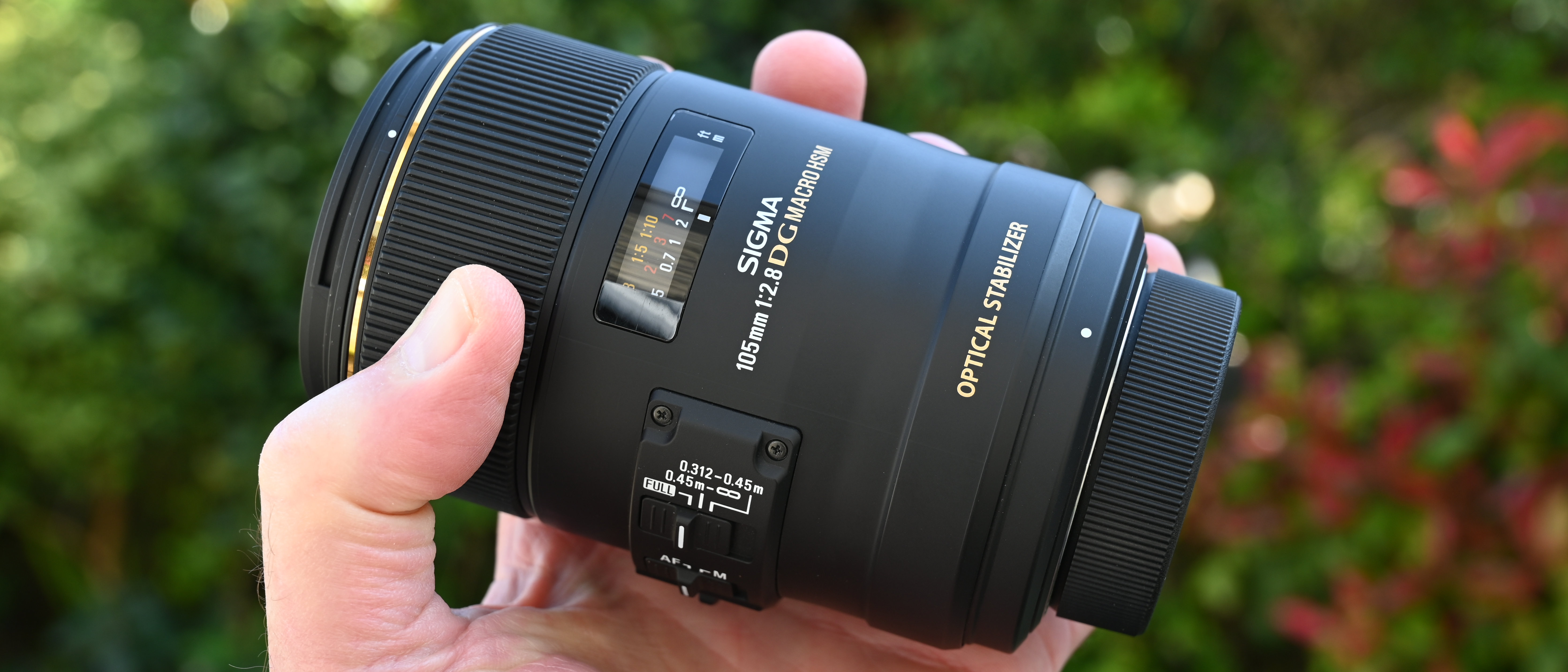Best BenQ monitors: high-quality screens for photographers and creators
We reveal the best BenQ monitors for photo editing, video editing and gaming, including 16:9 and ultra-wide models
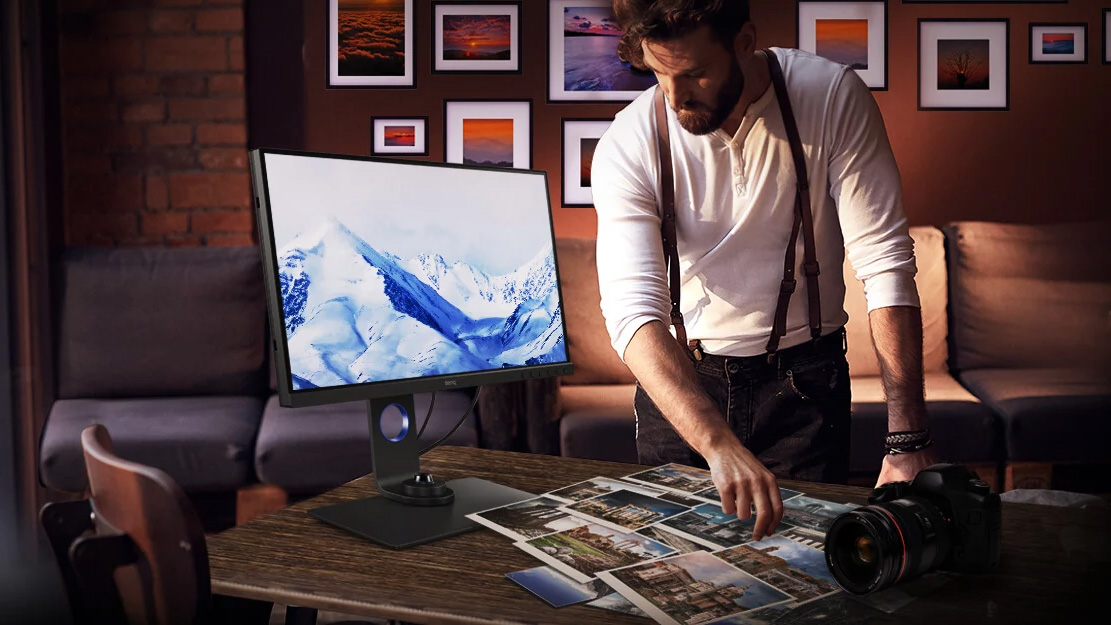
The best BenQ monitors are among the finest in the industry. This much-loved brand has carved out a strong reputation for its build quality, features and image quality. And while they not be the cheapest monitors in the world, you certainly get good value.
The Taiwanese brand has a focus on creating monitors for design, photography and video post-production. In fact, most of its flagship displays are for creative professionals in these industries. Its DesignVue line boasts useful tools for graphic, web, or art designers. Its PhotoVue line delivers industry-standard color support and accuracy for photographers. And its VideoVue line has everything covered for video editors and filmmakers.
You’ll also find BenQ monitors that target gamers, business professionals, home users, and folks with a higher-than-usual media consumption. So no matter the type of monitor you need, going with BenQ is a safe bet. Below, we list the best BenQ monitors available today and explain what each has to offer.
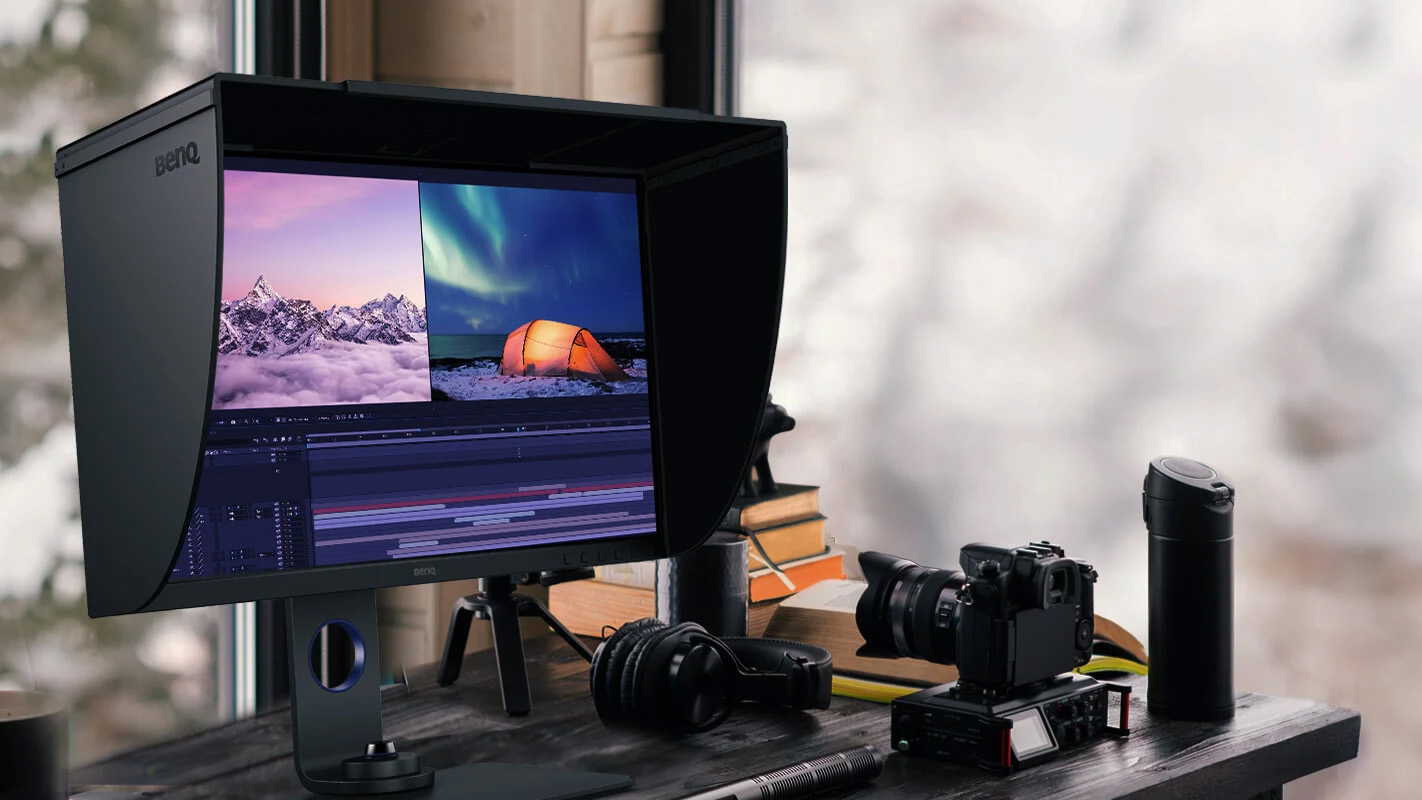
Specifications
Reasons to buy
Reasons to avoid
The BenQ SW321C may be a PhotoVue monitor, but it’s ideal for content creators who develop both photo and video content. We found this 4K monitor to be a superb choice whether you’re editing images or doing video post-production work, thanks in large part to its exactingly accurate panel that comes calibrated straight out of the box, its excellent color coverage, and first-rate brightness uniformity. The only thing that holds it back is its steep, pro-level price tag that puts it out of most enthusiasts' reach. But, if you can afford it, you’ll also be happy to know that it comes with many nifty extras and connectivity options.
See our full BenQ SW321C review
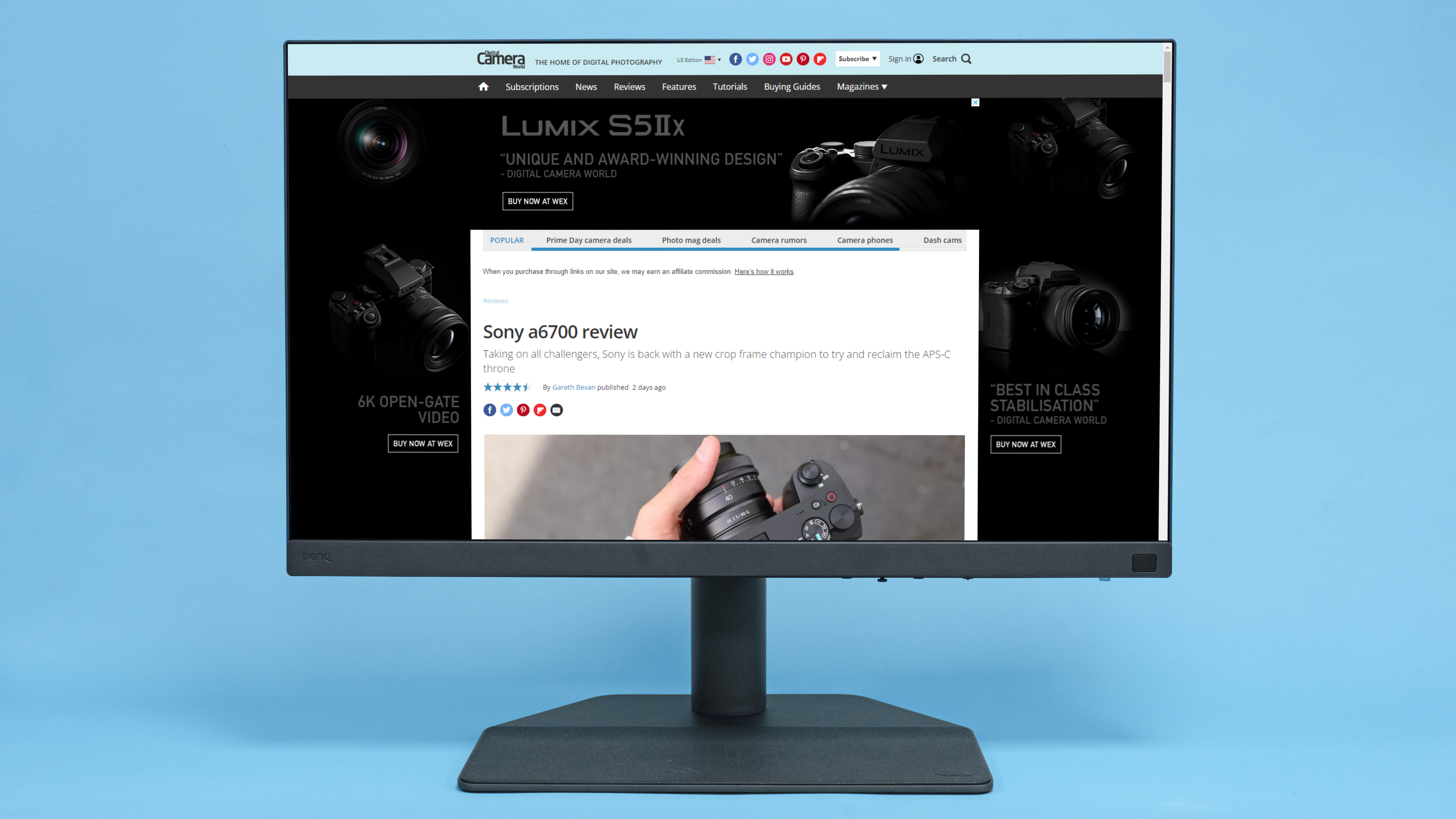
Specifications
Reasons to buy
Reasons to avoid
BenQ has a history of making some of the best monitors for photo editing, and the SW272U is its latest flagship offering for discerning photo and video editors. The new 4K display boasts factory color calibration to an accuracy of Delta E ≤1.5 and is capable of displaying 100% sRGB and 99% AdobeRGB coverage - impressive stuff. Elsewhere, you get USB-C connectivity with 90W Power Delivery, plus BenQ's third-generation color Uniformity Technology, hardware color calibration, and a separate 'Hotkey Puck' remote control for easy settings adjustment and color mode switching. In our comprehensive tests, the BenQ performed extremely well. In fact, the only drawback here is the monitor's price, which is significantly more than some rival screens which perform almost as well as the BenQ.
Read our full BenQ PhotoVue SW272U review for more details
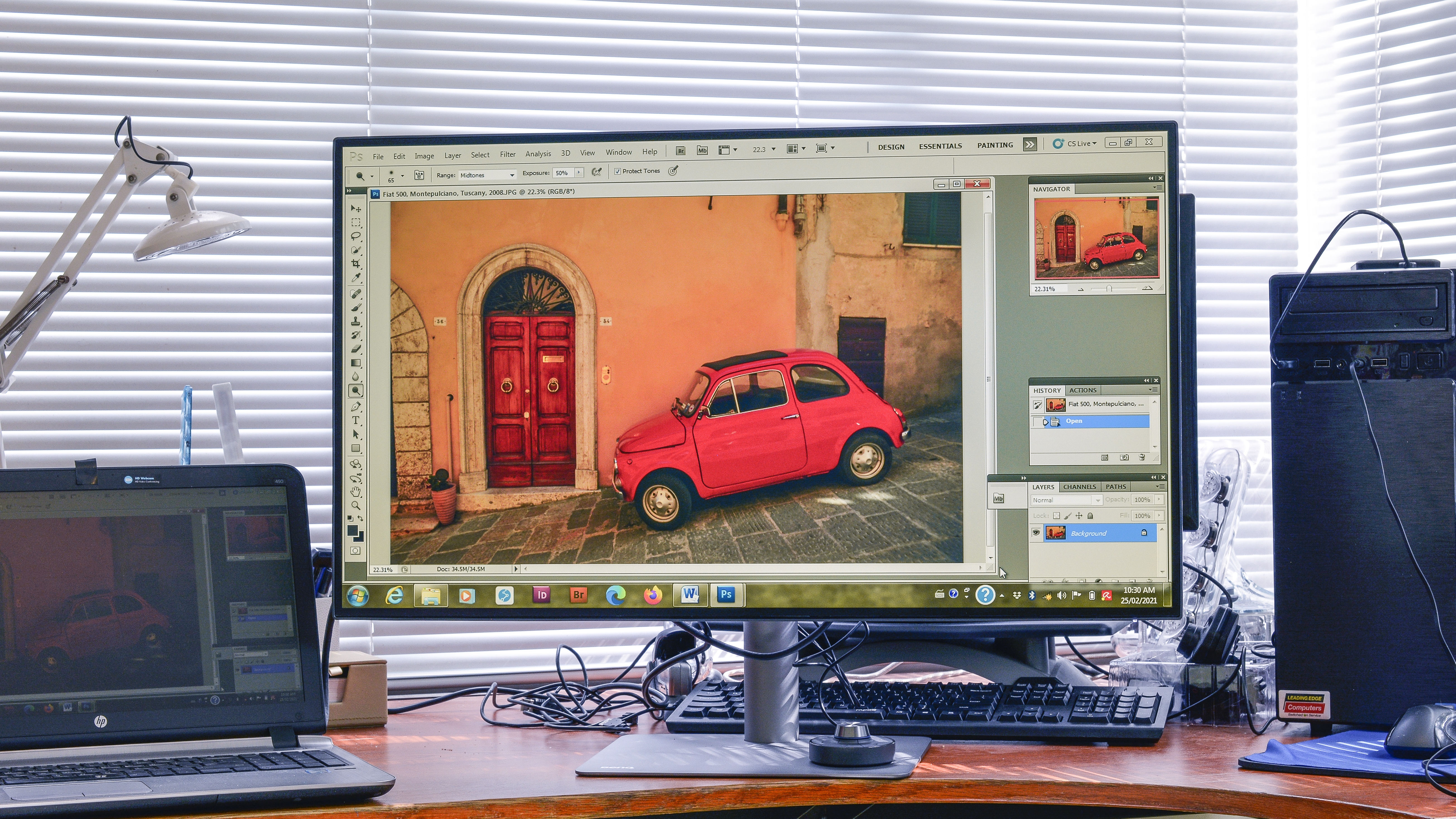
Specifications
Reasons to buy
Reasons to avoid
The BenQ PD3220U is created specifically with graphic designers in mind, with excellent color coverage, exceptional color accuracy post-calibration, and great features that make Mac and Windows creative workloads much more seamless and simplified. There are different color modes ideal for different workflows as well, such as CAD/CAM Mode and Darkroom Mode. Speaking of which, yes, you can absolutely use this monitor for your photo editing needs. And, of course, that 4K resolution and 32-inch combo is the sweet spot for professional creatives. You’ll be paying good money for this monitor, but not as much as the BenQ SW321C, which to be fair has better accuracy.
See our full BenQ PD3220U review
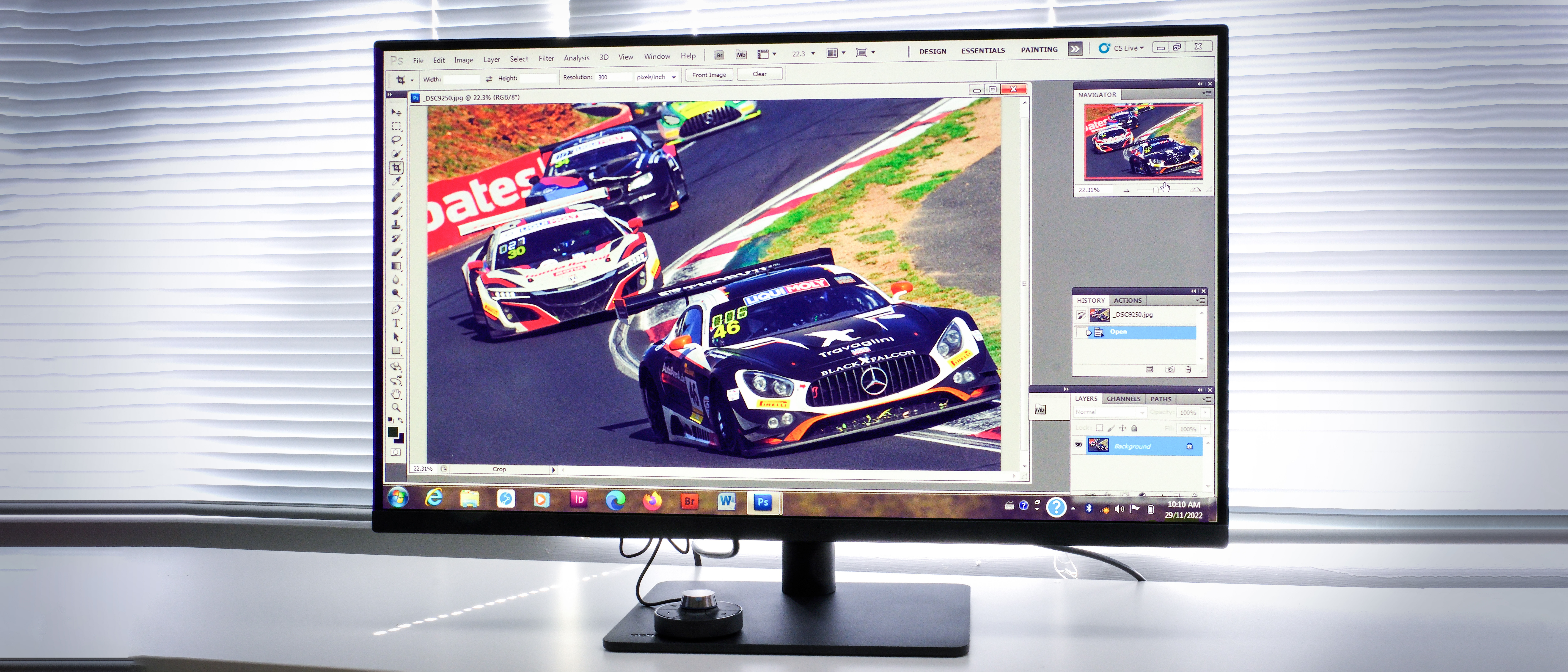
Specifications
Reasons to buy
Reasons to avoid
While it’s more of a no-frills model compared to the PD3220U (number 3 on our list above), the PD3205U has everything most pros working in both stills and video will need, at a very reasonable price. Color accuracy is outstanding, you get 4K resolution and a 31.5-inch screen, along with an anti-glare screen surface, Darkroom and Low Blue Light viewing modes, and flicker-free technology. Plus the hotkey controller and a multi-function USB-C in/out port provide an extra level of convenience.
The panel delivers 95% of the sRGB colour space and its video equivalent, Rec.709, which is the standard for colour reproduction on transmissive displays. Video makers will appreciate support for HDR10, but note that this monitor doesn’t support DCI-P3.
See our full BenQ DesignVue PD3205U monitor review for more details
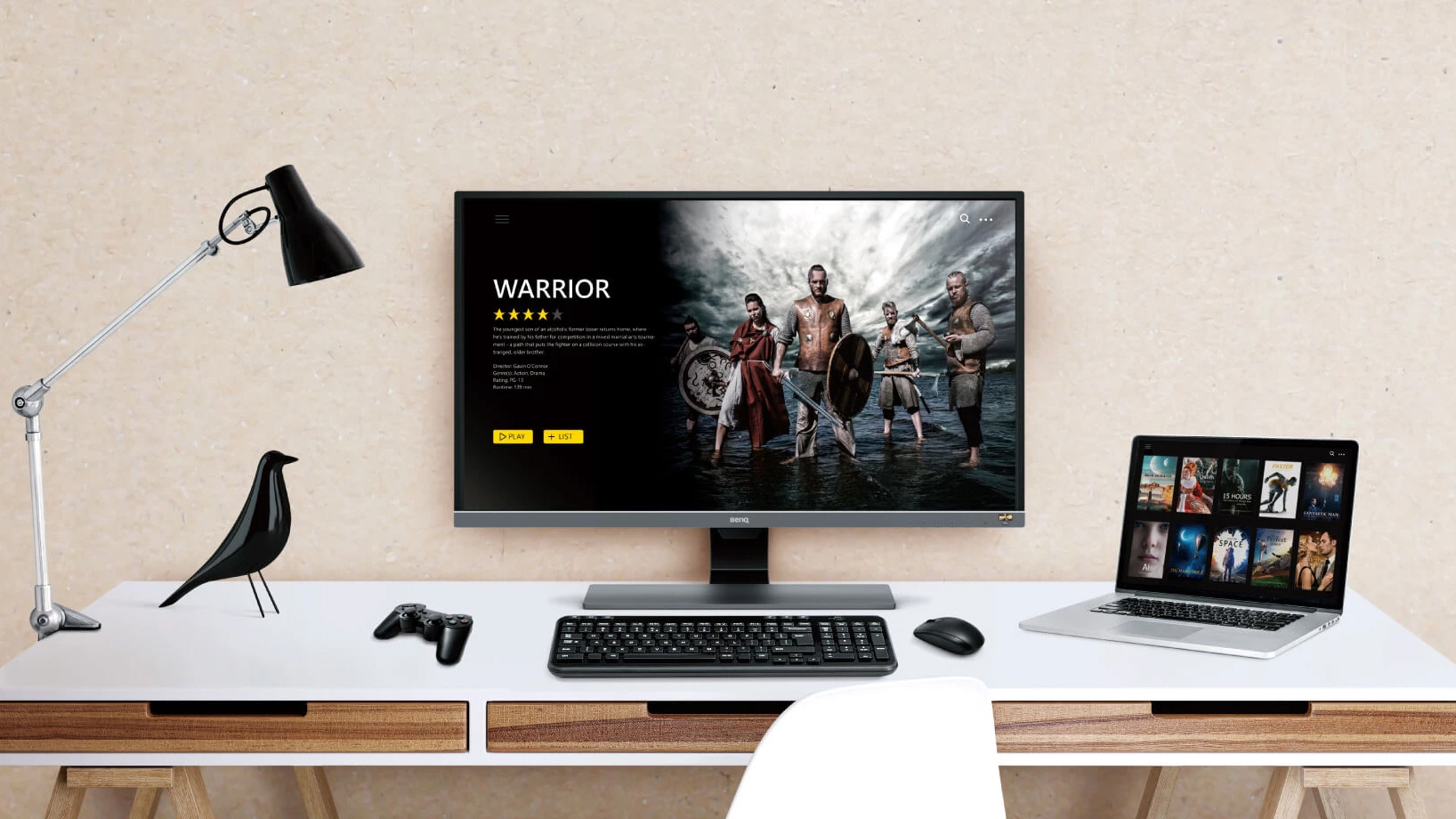
5. BenQ EW3270U
Specifications
Reasons to buy
Reasons to avoid
You don’t have to break the bank to get a quality 4K monitor. While the BenQ EW3270Q’s display might not be up to par for dedicated content creators, it is vibrant and detailed enough to handle any media consumption, non-competitive gaming, and productivity work you throw at it. Thanks to its excellent 3000:1 contrast ratio and HDR support, as well as decent color coverage and 300-nit brightness, your viewing pleasure is even more elevated. It also comes with several features to avoid eye strain and a great port selection. We wouldn’t rely on those built-in speakers, but they don’t stop this display from being a great entertainment monitor, especially at this price point.
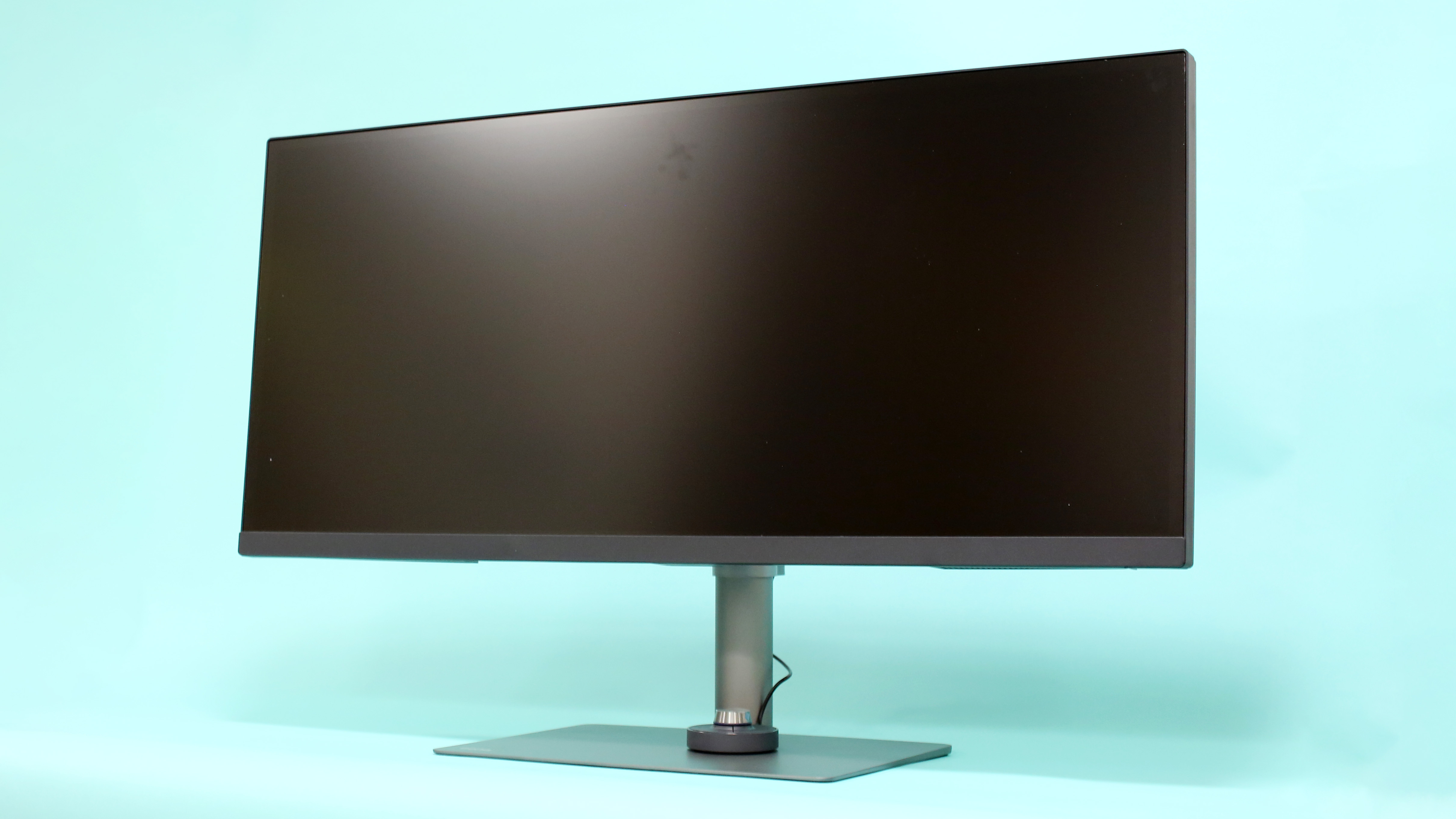
Specifications
Reasons to buy
Reasons to avoid
There are many reasons why investing in an ultrawide display is logical. And, we’re not just talking about creative-related ones. Gamers, bookkeepers, and multitaskers get a lot of use out of an ultrawide display like the BenQ PD3420Q. This is a pretty expensive 1440p monitor, but not so expensive that it’s a deal-breaker. After all, you’re getting excellent color coverage – that DCI-P3 is a boon to video editors – and DisplayHDR 400 – something gamers will appreciate. Of course, all those multitasking features like PIP/PBP come in handy for folks at the office. It also comes with all the ports you would need, whether you’re in the creative space or not.
See our full BenQ PD3420Q review for more details
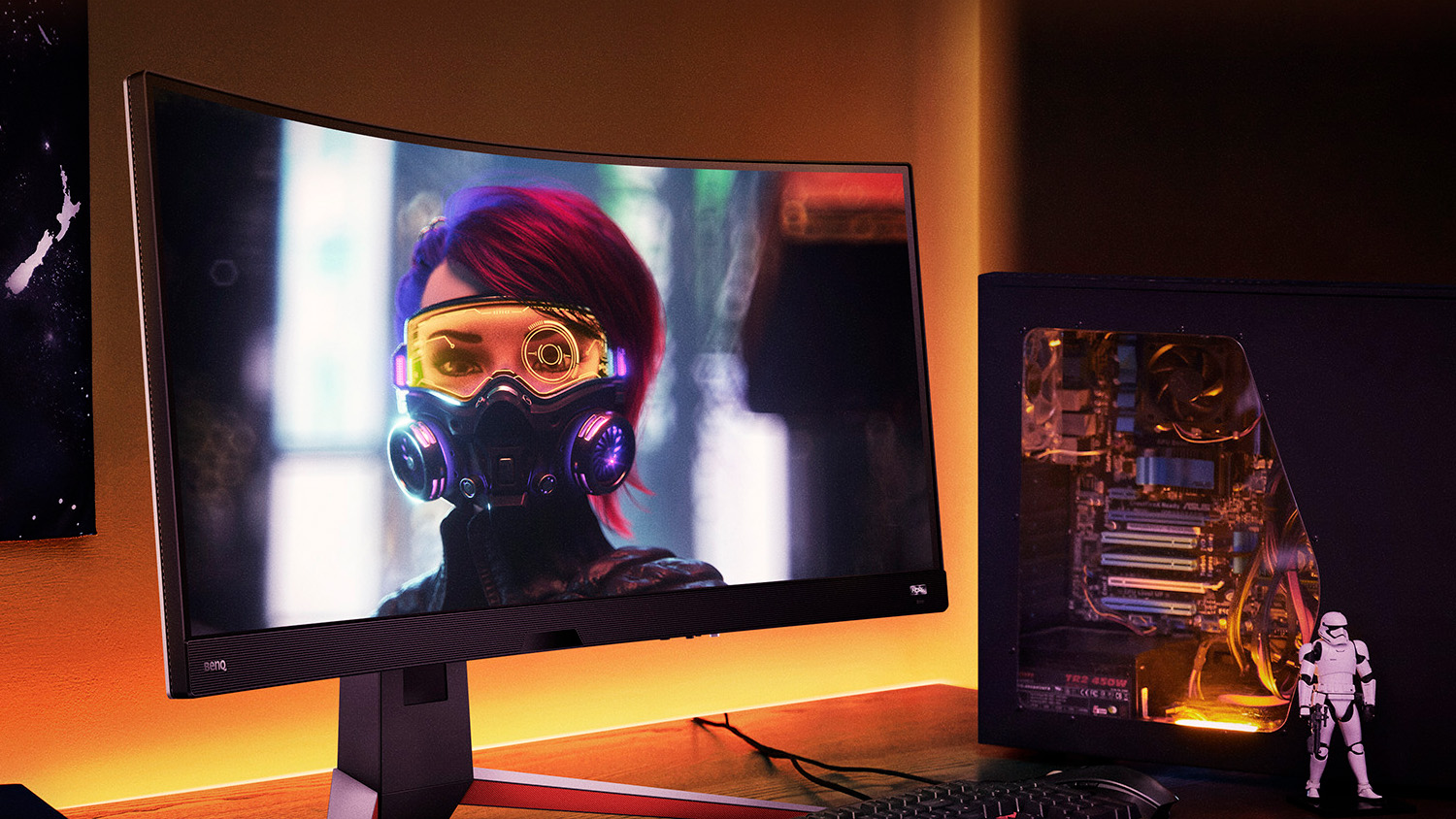
7. BenQ Mobiuz EX3410R
Specifications
Reasons to buy
Reasons to avoid
Right off the bat, you’ll know that the BenQ Mobiuz EX3410R is created for gaming. The name alone implies an enemy to be squashed. And this gaming display will help you do just that, especially with that snappy 144Hz refresh rate via its DisplayPort (120Hz HDMI). It’s an excellent option for competitive gamers as well as those with a penchant for fast-paced games, but its 1440p resolution ensures that narrative-driven game lovers will get sharp visuals as well. Meanwhile, its DisplayHDR 400 certification means you're getting more details in dark shadowy parts of the game and its 1000R curve on a 34-inch screen ensures the ultimate immersion.
What we look for in a monitor
Why you can trust Digital Camera World
• Screen size: You might think that the bigger the screen the better, but that's not quite the case. A big screen might be good for movies and gaming, where will typically sit back from the screen, but for editing and office work, a 24-inch screen is likely to be quite large enough, as there are more important factors to consider like resolution, color spaces and brightness. Screen size is measured in inches across the screen diagonal.
• Resolution: A higher resolution will make the pixels disappear so that the image is sharp, smooth and ultra clean-looking. A 4K screen will give terrific quality, but a 1920 x 1080 screen will still show visible dots. Resolution is measured in pixels as width x height.
• Aspect ratio: Most screens these days have a 16:9 ratio to suit common video and broadcast formats. You can get wider screens, typically for gaming. These can work fine for regular use too, though the extra width may mean you need to turn your head to see the edges. Many ultra-wide screens are curved for a more 'immersive' experience.
• Contrast: The better the screen, the higher the contrast ratio and the more rich and vivid the image on the screen. It's the ratio of the brightness value that can be displayed versus the darkest. A contrast ratio of 1000:1 or more is very good.
• Brightness: Brightness is measured in 'nits', and the higher the value the easier the screen will be to see in bright lighting.
• Color modes: All monitors match the sRBG color space more or less, which is a lowest-common-denominator default color space for both digital devices and cameras. Better monitors also support the Rec 709 standard closely, which is like an sRGB standard for video. The best monitors also support the DCI-P3 standard, which has a wider color gamut and is used for professional video editing, for example.
How we test monitors
We test as many monitors as we can when preparing our buying guides, and outside of our reviews process we have used all the monitors we mention or their near siblings.
We evaluate a monitor with particular attention given to its core image quality, including brightness, contrast, color vibrancy and accuracy. While this can - and will - be assessed by the experienced eye of our professional reviewer, some manufacturer screen specs can only be definitively judged by an 'electronic eye' - a monitor calibrator. Where possible, a calibration device will be placed on the screen to verify its advertised color space coverage, brightness output and consistency, and factory color calibration accuracy.
Beyond image quality, we'll also scrutinize the monitor's display and data ports to ensure acceptable connectivity, and will give a thorough assessment of build quality, including the range of ergonomic adjustment in its stand. Only then will we determine if a screen is worthy of use by a discerning imaging or video enthusiast.
Are BenQ monitors worth buying?
BenQ displays are robust, reliable, and feature-rich. They’re kinder to your eyes as well, thanks in large part to the company’s BI technology, which automatically adjusts the brightness and color temperature of the display to comfortable levels. Most of them, save for the premium ones, are also affordable, which means that whatever your budget, you’ll find a terrific panel that won’t break the bank. But, of course, if you have money to splurge, there are also a few superb premium options that deliver impeccable image quality and pro-level features.
Get the Digital Camera World Newsletter
The best camera deals, reviews, product advice, and unmissable photography news, direct to your inbox!
Michelle is a writer and photographer based in Los Angeles, California. She regularly writes for Fodor's Travel, Steve's Digicams, Thrillist and Techlicious, and is currently a freelance SEO and Production Editor for TechRadar.

